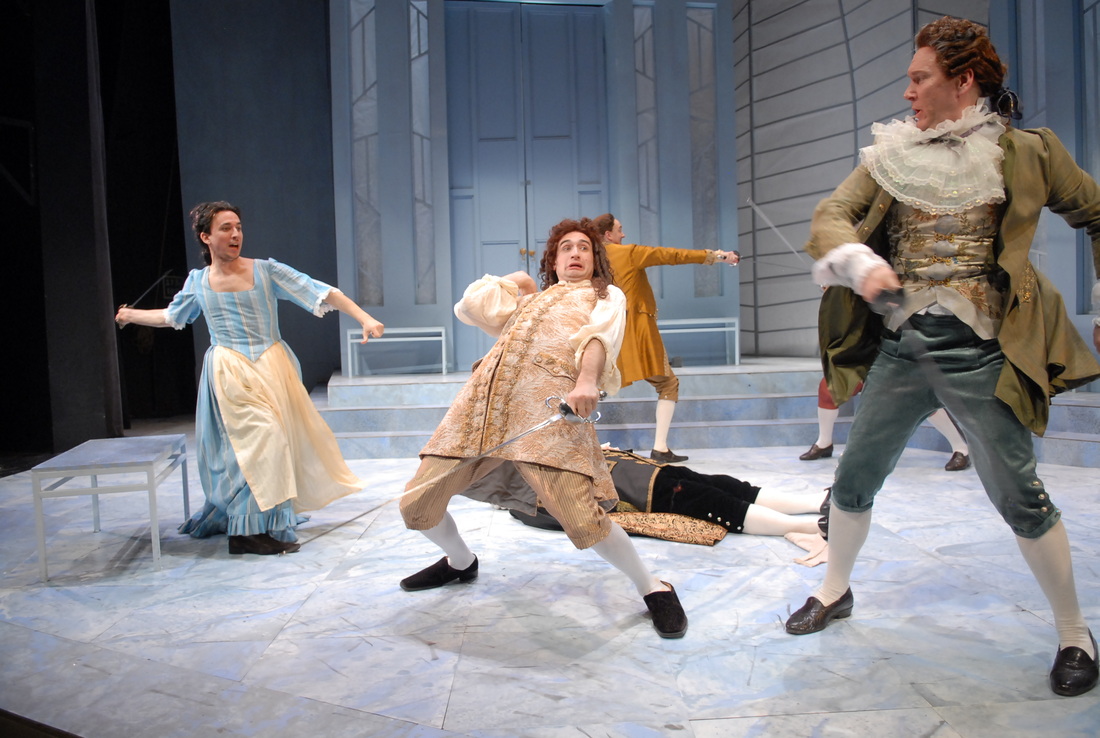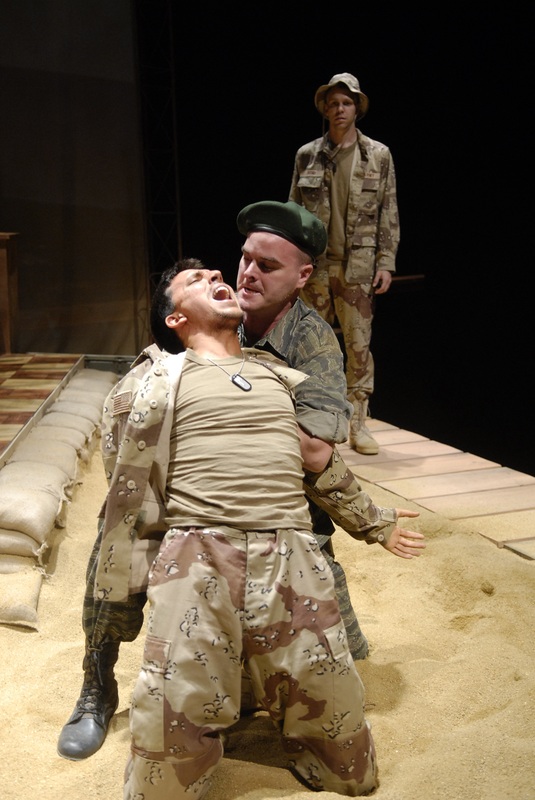|
Jacqueline Lawton: What was the first play that you ever directed? What did you learn from that experience that remains with you today?
Kasi Campbell: The first professional play I directed in the DC area was Jeffrey by Paul Rudnick. Very early on in my directing career I learned to honor and mine the genius that sits around the table. One can and should prepare as thoroughly as possible going into the rehearsal process, but it is so very important to remain open to the ideas of the actors and designers – to encourage an environment that fosters creative collaboration. If you are secure in your preparation and vision, then the voices around you are pure gold. JL: Why did you decide to get into theatre? Was there someone or a particular show that inspired you? KC: I had acted in summer stock since high school, but decided to pursue a music career as an undergrad even though I spent as much time onstage as I did in a music practice room . In my junior year I was dismayed to find that my hearing had deteriorated somewhat and compromised my ability to continue orchestral conducting….while at the same time I got to direct my first one act show and also was cast as the female lead in Marat/Sade. That play was a real eye-opener for me (creating a life-long love for intellectually challenging theatre), and I was very fortunate to have a mentor in the drama department, Dr. Michael Malkin, who helped me get into a graduate program so I could switch my career goals. JL: What kind of work do you do to pay the bills? How do you balance this work with your work as a director? KC: I am an associate professor of theatre at Howard Community College and as I teach mornings, I am able to freelance direct around the DC area very easily. The teaching “pays the bills,” allowing me to tackle whatever projects interest me. JL: In DC, we have the Capital Fringe Festival, the Intersections Festival, the Source Festival, the Kennedy Center's Page-to-Stage Festival, the Black Theater Festival, and the Hip Hop Theatre Festival. We also have the Mead Lab at Flashpoint Theater Lab Program. Have you participated in any of these? If so, can you speak about your experience? KC: I have been associated with the Source Festival since its inception. The first year I directed Sheila Callaghan’s play, Tumor, and since then have been a reader helping select both 10 minute and full length plays for consideration. I am passionate about “new work,” and consider it so very important to the fabric of the DC theatre scene. JL: How many plays have you directed in the DC area? How many of them were written by women? By playwrights of color? How conscious are you selecting plays by women or people of color when deciding your season? KC: I’ve directed 34 professional productions in the DC area and numerous productions at area colleges. Of these productions, 12 have been by women, one of those being Yellowman by Dael Orlandersmith. As a freelance director, I don’t get to choose a season’s offerings, but when I do offer play suggestions, I tend to recommend plays based on topics or genres that appeal to me without a specific gender agenda. JL: How do you feel the DC theatre community has addressed the issues of race and gender parity? How has this particular issue impacted you and your ability to work? KC: When I first came to this area, I remember seeing very few female playwrights, female directors or racially inclusive scripts on the season rosters of the major theaters, but over the last 20 years the landscape has changed significantly. However, if one were to do a head count of female directors that are not the Artistic Directors of their own theaters, I think you would still find that male freelance directors far outnumber female freelance directors hired in this area. JL: If you could be direct at any theatre in DC, which would it be and why? KC: To be honest, I would be happy to direct at most theaters in the DC area. If pressed to name some favorite theaters I would love to work at…I would have to say Forum Theatre because of their thinking “outside the box” when it comes to programming, Woolly Mammoth because of their risk-taking and mounting of new work, and Theatre J for their commitment to social issues. JL: DC audiences are ... KC: Smart and ready to rise to the challenge of demanding literature. JL: DC actors and designers are ... KC: Simply the best! The region is so blessed to have this kind of talent on our stages. JL: DC playwrights are ... KC: Deserving of all the support we can give them. JL: DC critics are ... KC: I don’t comment on critics, sorry. JL: What advice do you have for an up and coming DC based director or a director who has just moved to D.C.? KC: I’m a firm believer in finding new ways to “crack your head open” and view the world from different angles…so for that reason (even though it is so easy to make theatre a 24/7 vocation), take the time to get out of the theatre and go to a contemporary art gallery, take in a modern dance concert, read a scientific journal, volunteer at a community charity, take a long walk in a new neighborhood or on a nature trail….anything that forces you to look through a different lens. Our region offers such incredible diversity and thrilling adventures if you give yourself permission to explore beyond the footlights. JL: What's next for you as a director? Where can we keep up with your work? KC: Directing Tryst by Karoline Leach at the Washington Stage Guild in January.
0 Comments
Your comment will be posted after it is approved.
Leave a Reply. |
My BlogI'm a playwright, dramaturg, and teaching artist. It is here where you'll find my queries and musings on life, theater and the world. My posts advocate for diversity, inclusion, and equity in the American Theatre and updates on my own work. Please enjoy!
Categories
All
Archives
June 2020
Reading List
|



